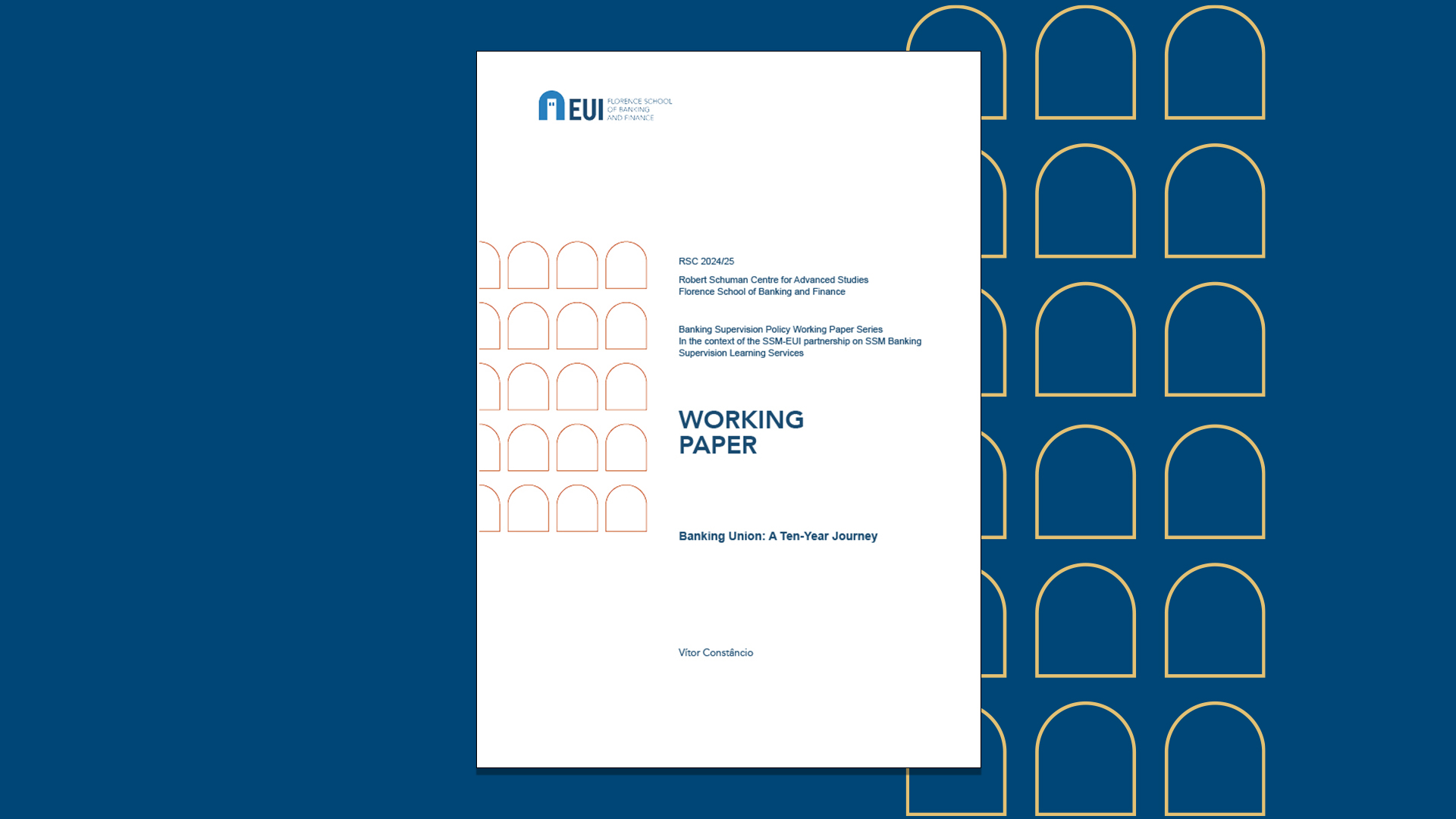
Read more
News
New ECB-EUI partnership to train banking supervisors
On the 6th December 2022, the Florence School of Banking and Finance and the European Central Bank launched a partnership to train banking supervisors during an event held at the Eurotower in Frankfurt. This...
The Florence School of Banking and Finance published the first papers of the new Banking Supervision Policy Working Paper Series, launched as part of the partnership with the Single Supervisory Mechanism (SSM), to promote policy and research on Banking Supervision. The series opens with a paper on the ten years of the Banking Union written by Vítor Constâncio, former Vice-President of the European Central Bank.
Read the first 3 papers
The papers from this first edition were chosen by an editorial board composed of senior members from the EUI scientific team and SSM senior managers. They were selected for their rigorous analysis and relevance on pressing policy issues, such as the completion of the European Banking Union, the SSM’s impact on supervised banks’ financial performance, and the links between corporate sustainability indicators and credit ratings.
- Banking Union: A Ten-Year Journey [read paper]
Vítor Constâncio, Former Vice-President, European Central Bank, Lisbon School of Economics and Management
This paper explores the theoretical underpinnings of the European banking integration, analyses the impact of the financial crises that spurred its development, and the historical reasons and shortcomings posed by the strict bail-in requirements stated in the Bank Recovery and Resolution Directive (BRRD). It also addresses concerns surrounding the full implementation of a European Deposit Insurance Scheme (EDIS), advocating for targeted reforms to overcome existing gaps and enhance European banking integration.
- The Effects of SSM Adoption on Bank’s Profitability [read paper]
Tommaso Perniola, European Central Bank, and Institute of Economics and EMbeDS, Scuola Superiore Sant’Anna, Pisa, and Pietro Chiarelli, European Central Bank
This paper identifies a positive effect of the direct banking supervision by the ECB on banks profitability protracted over time. The authors use a long-term effects difference-in-difference model which accounts for leads and lags, in order to analyse whether the treatment effect changes over time. Finally, the authors discuss conclusions that the supervisor could draw from their empirical results, as well as how it interprets its role and looks at the performance of supervised entities.
- Environmental Performance and Credit Ratings: A Transatlantic Study [read paper]
Haoshen Hu, BaFin; Emese Lazar, University of Reading, ICMA Centre, Henley Business School; Jingqi Pan, University of Reading, ICMA Centre, Henley Business School, and Shixuan Wang, University of Reading, Department of Economics
This paper investigates the impact of firms’ environmental performance on their credit ratings by conducting a transatlantic study covering companies in the United States (US) and in the European Union (EU). The study reveals that firms’ environmental improvements positively contribute to their credit ratings. However, this effect varies between the US and the EU. If US and European firms enhance their environmental performance by the same scale, the former’s creditworthiness benefits more than the latter’s. Additionally, the authors show that improvements in environmental performance affect credit ratings linearly in the US but nonlinearly in the EU.
Looking to contribute?
This Working Paper Series is set to become an important resource for those engaged in banking supervision, offering comprehensive research and innovative perspectives. It is open to members of the EUI and SSM communities, and we encourage you to submit your research for inclusion in upcoming editions. Contributions are also welcomed from other EU and Academic Institutions.
For further information on the publication process here please check the Call for Papers.
Paper submissions, policy notes and briefs are accepted on a continuous basis. Please ensure that your submission adheres to our guidelines.
To submit your paper, or if you need further information, please contact leopoldo.perezobregon@eui.eu
